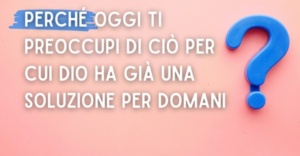Chemistry professor Troy van Voorhis is a bit of an anomaly, an evangelical Christian — by definition, though not necessarily by social or political affiliation, as he is quick to note — working at that high church of science, the Massachusetts Institute of Technology (MIT). Van Voorhis will be at the University of Rhode Island’s Center for Biotech and Life Sciences February 28 at 7 pm to deliver a talk — free and open to the public and streamed live at uri.edu/news/urilive — titled “Why Science Isn’t Enough: Faith, Reason and the Human Need for Certainty.”
We caught up with the professor for a Q&A in advance of his lecture. The interview is edited and condensed.
WHAT’S YOUR TAKE ON THE CONFLICTS THAT PERIODICALLY ERUPT BETWEEN FAITH AND SCIENCE? Some of the battle is not as much a battle between faith and science as a battle between people of faith and people of science. To take a hot-button issue like evolution, a lot of the conflict [stems from] the issue of power and control — what should we be teaching our children? People who have kids in public schools [and whose beliefs are] contrary to what the scientists believe want to have some control over what their children learn in school. And so I think there’s a lot of conflict, but it’s sort of interpersonal conflict. When I look at people who are primarily scientists, they’re kind of baffled by this concept because they don’t really understand why people don’t just sort of accept what we say as scientists.
RESEARCH SUGGESTS MANY IN YOUR PROFESSION ARE ATHEISTS OR AGNOSTICS. Once you get a group of people together all sort of believing one way, it becomes a bit inhospitable for folks who believe a different way. And then, I think, on top of that is a selection bias within some of the faith communities. For example, the evangelical Christian community — there’s a stigma attached to working as a scientist. There’s an idea that there are certain other professions — like being a minister or being a doctor or being a lawyer who fights for justice — that these are things that Christians should do. And doing something as esoteric as just studying science for the sake of studying science isn’t something that glorifies God or contributes to the betterment of humanity.
YOU POSIT A QUESTION IN YOUR UPCOMING LECTURE: “HOW CAN A SCIENTIST WHOSE LIFE’S WORK IS BASED ON EMPIRICAL EVIDENCE BELIEVE IN SOMETHING AS ANTIQUATED AS THE BIBLE?” SO I’LL ASK YOU THE SAME QUESTION. The most vocal faction of Biblical scholarship is the literal school — where if you say you believe in the Bible then you must believe in a literal interpretation. I think, in my opinion, the literal interpretation of Scripture really arose as a reaction to science. In other words, science was starting to say, “Oh, Scripture [isn’t] all that relevant.”
I don’t [subscribe] to the literal interpretation of Scripture. The reason, ultimately, that I choose to interpret the beginning of Genesis in the way that I do is in part informed by scientific research that all seems to be pointing to the fact that the earth and the universe are several billion years old.
The account of Genesis is not a scientific piece of data on how God did it, but more of God’s narrative of his motivations — why he created the universe the way he did and what man’s role in the universe is supposed to be.
IN ACADEMIA, HAVE WE REACHED A POST-RELIGIOUS ERA? I think there is more and more of a shift towards people realizing that this sort of “never the twain shall meet” is unrealistic — and part of this has been driven by students.
It was sort of assumed [a generation ago] that a generation down the road no one would be talking about faith — all the people coming to school would be sort of post-religious. And that hasn’t really happened. The students who come to schools like Harvard and MIT and URI, they all still have these faith backgrounds.
So people are starting to realize that trying to educate students in such a way as to say, “Well, now you have to leave all these things at the door, so to speak, when you come into the classroom” is probably a disservice. Trying to actually bring those issues to bear on their scholarship and on their work life is probably beneficial. And so it’s actually been somewhat of a crisis at the university level for people to start to figure out, “Well, how do we do that?”
WHAT ARE YOU HOPING TO ACCOMPLISH WITH THIS TALK? In science we focus so much on objective knowledge or objectification — making myself objective, separating myself from the thing that I’m learning, recognizing that there may be some objective truth, irrespective [of] my relationship to the truth.
That’s been a great thing in terms of advancing society, generating new technologies, but it isn’t the whole of our existence. One very important component of truth is that subjective piece: “How do I relate to this piece of truth? How does it affect the way I live?” And for me, Christianity and Jesus Christ, in particular, have been very important in terms of trying to understand and make sense of how I should live within the light of these objective facts.
And whether people choose to follow Christ or to follow whatever their faith background or to be atheist — for them to make sure that they have wrestled with these issues of how they should be subject to the truth and what reality and what truth has to say about how they live. These are important questions [and] I don’t think we really teach them in the university very much.
Ti è piaciuto l'articolo? Sostienici con un "Mi Piace" qui sotto nella nostra pagina Facebook


























